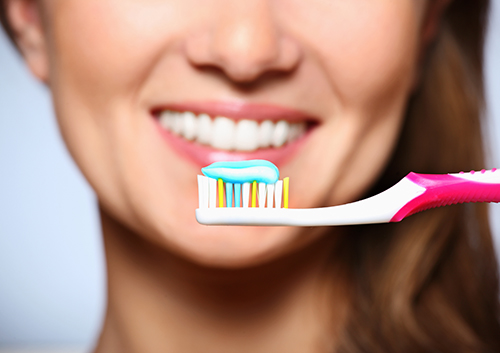
Mother’s Day is around the corner, and if you’re looking for some different gifting ideas for one of the most important people in your life, we have some suggestions for you. Here are a variety of gifts large and small tailored to your mom’s interests and chosen to support her dental health. After all, that’s what we’re here for!
If your mother hasn’t tried the latest in brushing technology, a new electric toothbrush might be the gift to warm her techie heart.
Modern electric toothbrushes have plenty of options for the tech-savvy. They come with different settings for brushing and massaging. They can let your mom know if she’s brushing long enough, or if she’s brushing too hard, or when the brush head needs to be replaced. Some models link to apps which show a map of just where she’s brushed, in case some spots tend to get overlooked and underbrushed.
A week in the woods doesn’t faze her. Backpacking? Relaxing. Day hikes? No problem. So help your mom stay unfazed, unstressed, and problem-free with an emergency dental kit for peace of mind during those adventurous outings.
Lightweight kits are available in sporting stores and online. Supplies like cotton rolls, dental floss, oral pain relievers, a dental mirror, and even temporary fillings are included, because, as your mom no doubt told you, it’s always best to be prepared!
For the mom who appreciates foods which both taste good and do good, consider a gourmet gift which can satisfy her palate and contribute to her health. While normally we wouldn’t recommend sugary chocolates as having any kind of health benefit, dark chocolates are the delicious exception to the rule.
Dark chocolate (at least 70% cacao) is a great source of antioxidants, iron, zinc, magnesium and other important minerals. It’s lower in sugar content, and some studies suggest that dark chocolate has cavity-fighting properties and supports gum health. For a personal touch, deliver homemade treats like dark chocolate-covered frozen bananas (low in acidity and filled with nutrients) or dark chocolate-dipped strawberries (a good source of vitamin C, which is great for her gums).
She can outski you, outrun you, and hit those threes with ease. If your mom finds her bliss on the slopes, the soccer pitch, the basketball court, or any other sporty venue, consider a custom mouthguard to protect that winning smile.
Custom guards are more comfortable than store-bought options because they are molded to fit the user’s teeth and mouth precisely. This is especially helpful for those with dental work like braces or bridges. And, because the fit is custom, your mom will enjoy easier breathing and talking while exercising.
With her active life, any gift which makes your mom’s busy schedule run more smoothly is a good thing—such as a portable kit filled with dental necessities.
A travel toothbrush, a small tube of her favorite toothpaste, a compact mirror, dental picks, dental floss, and a mini-bottle of mouthwash are great basics for a confident smile any time of day. Put everything in a stylish lightweight travel bag. And don’t forget to include a pack of sugarless gum! Sugarless gum helps increase saliva flow (for better hydration) and decrease oral acidity (to help prevent enamel erosion).
With those perfect selfie angles, your mom’s smiles light up social media! If she’s ever expressed an interest in lightening and brightening that beautiful smile, a professional whitening treatment might be the very gift for her.
Professional whitening at our Carrizo Springs office is the most effective way to brighten teeth, with results which are generally faster and more long lasting than over-the-counter treatments. And it’s done with your mom’s dental health in mind, with a checkup to make sure her teeth are in perfect shape before whitening, and with protective measures in place for sensitive mouth and gum tissue.
We hope this list is a helpful starting point for choosing a smile-healthy gift tailored to your mom’s interests. But we can’t close without adding one last gift perfect for every mother. Including a heartfelt letter or card telling her how much she means to you will put a smile on your mom’s face long after Mother’s Day has come and gone!




